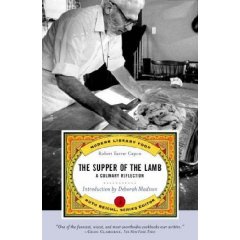I finished reading Peace Like a River by Leif Engle not long ago. My wife had told me it was really good after devouring it in one day during a trip to Seattle last year. In fact, it’s been one of the only books I’ve ever purchased for her as a gift that was a big hit. I’ve often misjudged. Tonight, she started reading it again and commenting on how good the prose was. Good compared to what? Compared to the amateurish writing in one of my favorite fantasy novels when I was a child, that’s what. And a lot of other things too.
I used to eat up in everything in Raymond Feist’s many volumes detailing the lives of kings and wizards in his world of Midkemia. That all started with Magician. I didn’t realize it at the time, but the writing in those books is incredibly bad. I’m not talking about the story. It’s pretty cool. Some of the characters are pretty interesting too. But the actual writing, the prose, the descriptions, the dialogs, the imagery – it’s junk. I could write that stuff. If I did try to write a novel, I probably would end up writing that stuff. But not Leif Enger. His writing is amazing.
OK. So just about anybody is better than the writing of a lesser-known fantasy smith who used to design board games. How about the famous Umberto Eco? His The Name of the Rose is held up as a masterwork of contemporary literature. And it’s really good. But it’s got nothing on Leif Enger’s stuff. He can turn a sentence in such a way that makes you feel like you are there – like you are looking into the heart of the character, even though he is just describing them eating their oatmeal in the morning. To cut Eco some slack though, I realize that he wrote the book in Italian before it was translated…
Anyway, back to Peace Like a River. It’s a novel. It takes place in the midwest U.S. during the 1950s. It has the feel of a western. The story kicks off really well but then stalls about halfway through. It picks up at the end though. The plot and characters are OK, but that’s not why the book is great. The book is great for passages like this, where the protagonist’s young sister is introduced:
And then to school, where I swam upstream through geography and grammar and where Swede, who disliked long division, tried to win her teacher’s favor by composing heroic verse. What was Miss Nelson supposed to think when Swede, dimpled and blond, coming up on nine year old, handed in a peom like “Sunny Sundown Delivers the Payroll”?
The men who worked the Redtail Mine were fed up with the boss.
They swarmed around his office door like blackflies round a hoss.
“No wages these three months!” one cried. “Let’s hang the lousy rat!
He’ll starve our very children, boys, while he himself gets fat!”
And true enough, behind the door, a fat man shook and wept;
The wobbling bags beneath his eyes said this man hadn’t slept.
A messenger had brought him word that made him feel his age:
Valdez, last night – the third straight month! – had robbed the payroll stage…
Swede had lost her heart to the West early on, something that gave Dad no end of delight. He supplied her with frayed Zane Grey paperbacks thrown out by the school library, Wilderness Trek and Robber’s Roost and of necessity Riders of the Purple Sage. Swede popped them down like Raisinets. You have to admit she learned the language.
Now, if it was Fiest writing at the beginning of his career, it would have come out like this:
Reuben’s sister Swede wasn’t good at math, but she liked to write. She had a Clint Eastwood poster on her wall and was always asking her mom for a horse. When she didn’t get one, she took up writing about horses and the things that went with them. Like cowboys. Cowboys with +2 attack six-shooters and 100 hit points. She was in the fourth grade.
Eco might have put it this way:
Reuben descended the stairway in good humor. While waiting for suppertime, he came upon his beloved sister, seated at the kitchen table, having procured several cookies from the larder. “I’ve written an opening to my new epic, brother.” she pronounced. Swede was young, not yet in her tenth year, but well versed in the lore of the horse lords across the sea. Regrettably, her enthusiasm to travel there had been dampened by her father’s being summoned to the synod of 1482 in Wiems, where a great many heresy’s were bought to light…
(About six pages of largely irrelevant back-story later…)
She threw back her blond hair as she cleared her throat and began to speak.
An improvement, of sorts. I guess.
So check out Peace Like a River. You’ll dig it. Read it slow so you don’t miss the wonderful words. I think Enger has a new book out too. Maybe I’ll pick up that one some time. I wouldn’t have known what I was missing beforehand.




